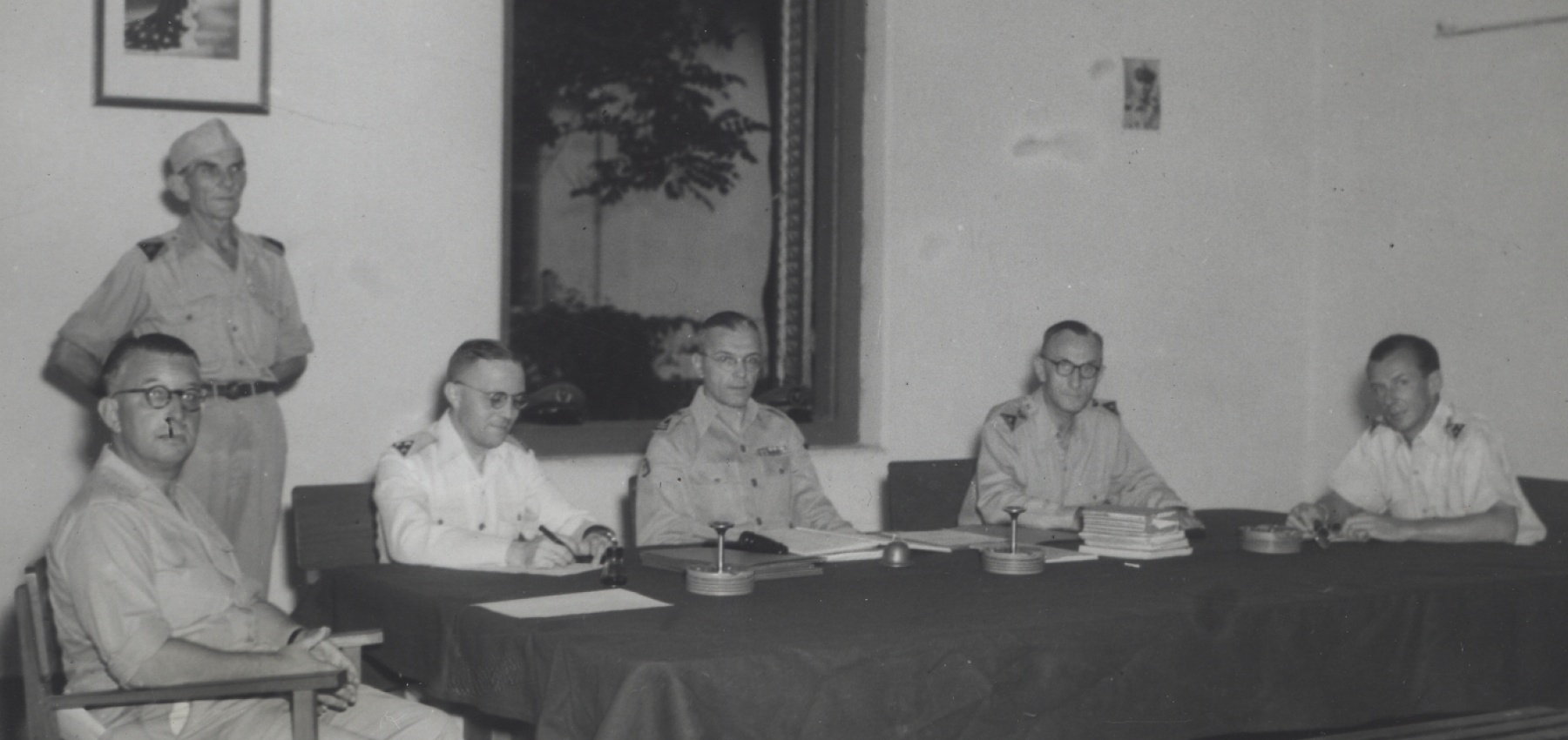In the colonial state, the judicial system was a key instrument of power in maintaining control over the population and protecting the position and interests of the Europeans. The judicial system was also used as an instrument during the Indonesian war of decolonisation, this time to counter nationalism. Because of the ‘state of war’, a state of siege was declared in a number of areas. The military authorities gained more powers and part of the judicial system was militarised as a result of this measure. Alongside the civilian courts that decided in cases concerning ‘ordinary’ crimes, military courts decided in courts martial concerning criminal prosecution for crimes related to the conflict.
The Dutch military judicial apparatus fulfilled a dual role. On the one hand, it focused on Indonesian civilians and combatants who, in the eyes of the Dutch, had turned against the army or the colonial government by joining ‘illegal’ militias, carrying weapons or committing acts of violence, for example. By interning Indonesians on a large scale, often without any kind of due process, and by imposing heavy sentences in trials, the military authorities could deter, weaken or temporarily neutralise the adversary. On the other hand, the Dutch military judicial apparatus was tasked with investigating and, if expedient, imposing punishments for offences committed by Dutch military personnel, not only to serve justice but also to maintain discipline within the Netherlands armed forces. A problem in this regard, however, was that Dutch commanders and courts martial were trying ‘their own’. In other words, the members of a court martial were mainly military personnel from the same body of men as the individual on trial. As part of the military apparatus, to what extent could the military justice component remain independent of military and operational interests?
The main focus of this study is on the actions of the Dutch military judicial apparatus, particularly in terms of how this apparatus handled extreme force and other crimes under the law of war, such as murder, arson, torture, rape and pillaging. A number of offences under military criminal law and disciplinary law, such as desertion and insubordination, are also being studied and, where possible, the way in which the Republican military judicial system developed will be studied. To determine the factors that influenced the military judicial apparatus, the first area of focus will be the military administration of justice in an organisational sense, the nature of relations with the political and military leadership and the legal frameworks within which the military judicial apparatus operated. For instance, what legal measures were taken in cooperation with civil authorities to maintain control and take action against crimes committed by Indonesian and Dutch individuals?
In addition, the respective backgrounds of the personnel and those in charge of the military judicial apparatus will be examined in terms of the education and training that shaped them and the knowledge that they had of the laws in force at the time and of the law of war. The extent to which prevailing standards and opinions were applied in practice by the military judicial apparatus will also be considered. How were prisoners treated? What was punished and what was not? Considerations in this regard will include the extent to which the approach and the result differed between the branches of the armed forces, between regions and, above all, between Indonesian and Dutch suspects.
The purpose of these efforts is to map out how the actions of the military justice system on both sides affected the discipline and morale of the troops and therefore the course of the conflict. The study ultimately hopes to provide an answer to the question concerning the extent to which the intervention, or indeed the non-intervention, of the military judicial system led to an increase in the use of extreme force during the war of decolonisation.
This project is being implemented by Esther Zwinkels.



